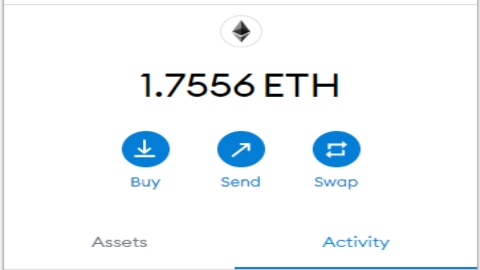The cryptocurrency ecosystem has seen tremendous growth in the last couple of years, as the introduction of decentralized finance (DeFi) and the popularity of non-fungible tokens (NFTs) have spawned a slew of projects in more than one dozen blockchain networks.
The rapid growth of the ecosystem means investors have to keep track of multiple wallet addresses, making portfolio trackers a popular choice for traders who need to manage a diversified portfolio across multiple chains.
Here are three portfolio tracking DApps that cryptocurrency traders can use to monitor their investments.
Zapper.fi
Zapper.fi supports basic management of cryptocurrencies held on eleven different networks, including Ethereum, Polygon, BNB Chain, Fantom, Avalanche, and Optimism.
The basic layout of the home page provides information on the various protocols that the connected wallet currently participates with, and also provides a summary of the value of assets held on each of the supported networks.
Users can trade tokens through a basic interface that integrates with liquidity from decentralized exchanges like Uniswap, Pangolin, and QuickSwap, and can also use the bridging feature to transfer assets between supported networks.
Traders can also deposit assets into Zapper-integrated protocol pools such as SushiSwap, PancakeSwap, Curve, Aave, and Compound.
Other integrations include yield farming options and the ability to deposit assets into vaults on Yearn.finance.
Portfolio managers similar to Zapper.fi include Zerion, Instadapp, and DeFi Saver.
NFT Bank
NFTBank is a free portfolio tracker that is specifically designed to help users manage their NFT holdings by providing a variety of tools to help with tracking and research.
The main portfolio interface provides a convenient summary of NFT gains and losses in the connected wallet, detailing total income, total spend, return on investment, and the current inventory value of the assets you own.

The main page also includes a simplified yearly calendar indicating the busiest days for the wallet or set of wallets in question, and there is the option to share a screenshot of the portfolio’s progress via social media.
Users can see a more detailed summary of their holdings, track the performance of each asset, access an activity log for all interactions with the different collections, and to download tax filing documents to report earnings to the appropriate government organizations.
NFTBank also offers an NFT explorer that is capable of searching through collections on Ethereum, Klaytn, Ronin, and Polygon to view data on current and previous price lows, percentage change, 30-day volume, and number. NFT diary newly included in each collection.
A price search feature allows users to search 1,222 different collections to find the “deal of the day,” breaking them down by estimate price, floor price, sale price, rarity range, and a markup rating or undervaluation.
NFT trackers comparable to NFTBank are portfolio tracker DappRadar, ArtCentral.io, and Value.app.
DeBank
DeBank is a more advanced interface that helps DeFi investors manage their holdings in 19 different blockchain networks, such as Ethereum, BNB Chain, Polygon, Chronos, and HECO.

DeBank’s main interface provides a summary of the value held on each network, and users can also view a deeper analysis of the amount held and staked on each wallet and across all decentralized finance and non-fungible token platforms.
The DeBank NFT section currently supports 414 collections on the Ethereum network, providing basic information such as the name of a specific NFT and its minimum price.
One feature that comes in handy for active DeFi users is the DeBank Token Approvals section, which includes all the different active contract approvals for the connected wallet, the amount approved, and a summary of risk exposure.
– Keep in mind that you can manage your token approval permissions @DeBankDeFi with straightforward UI:
1. Decline untrusted ones
2. Search to verifyhttps://t.co/XpcpO0VdCi https://t.co/7O6xLAwrIn pic.twitter.com/RXlMPWy28l— DeBank (@DeBankDeFi) February 28, 2021
Using the token approval management tool, users can reject any currently approved contract directly through DeBank.
The platform includes a “Feeds” section, which is a social feature that allows users to follow other users who have high social rankings on web 3.0 to follow their latest trades, NFT purchases and comments.
DeBank also offers a “DeFi List” that includes data on more than 1,165 different protocols spread across all supported networks and groups them by labels, such as yield aggregator, decentralized exchange, options or NFT, and provides information on the total deposits of the users and the number of active users in the last 24 hours.
Portfolio trackers similar to DeBank include Ape Board, Zerion, and Tin.network.
The views and opinions expressed here are solely those of the author and do not necessarily reflect the views of Cointelegraph.com. Every investment and trading move involves risk, you should do your own research when making a decision.
